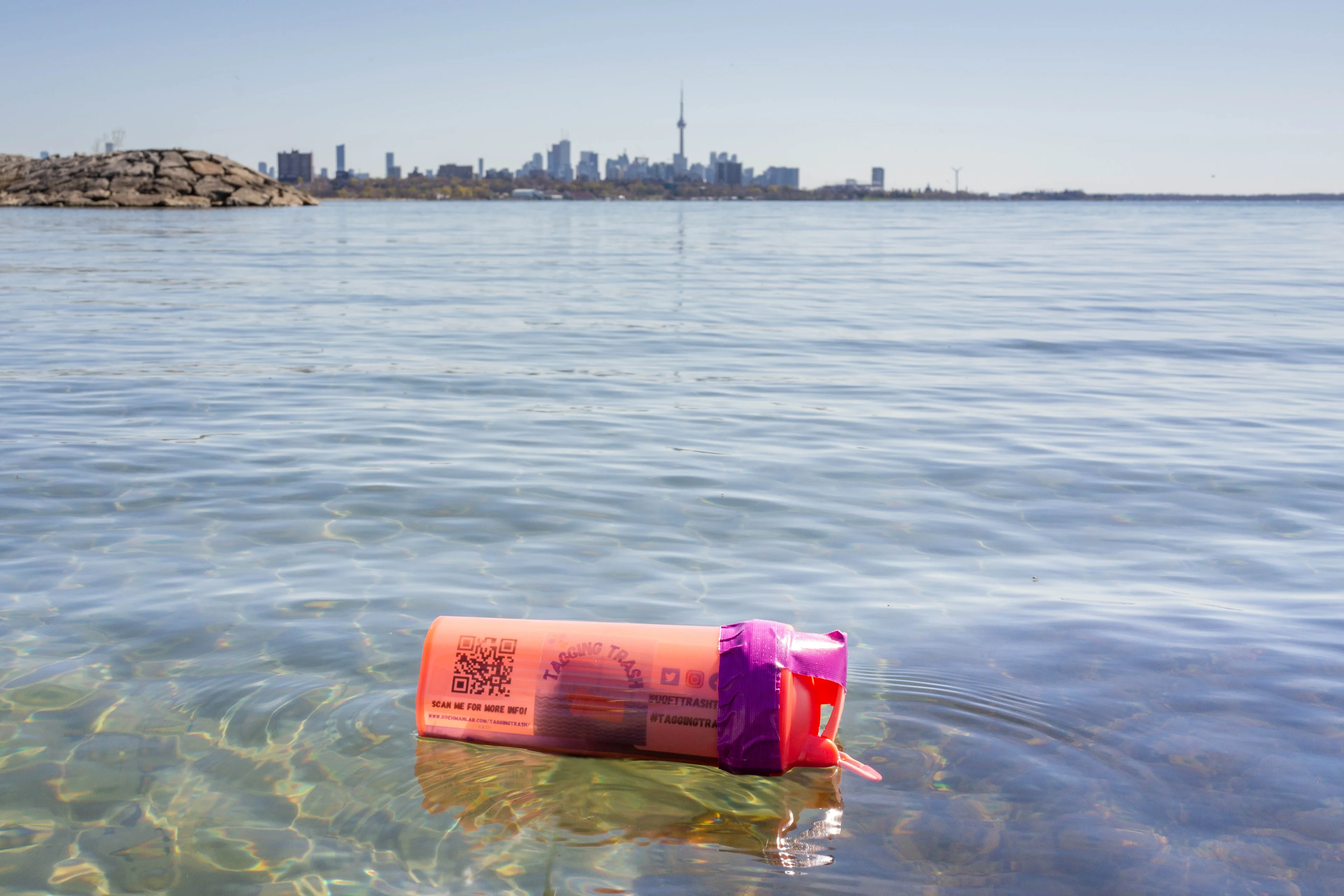
UofT researchers are dumping plastic bottles into Lake Ontario, here's why
A University of Toronto research group is hoping to discover ‘litter hotspots’ in Lake Ontario so they can implement solutions that will reduce pollution.
Seeing University of Toronto researchers dumping plastic bottles into Lake Ontario might make one wonder, have the environmentalists gone rogue?
While the sight might be shocking, the U of T Trash Team is a research group that is releasing plastic bottles with GPS trackers into the Toronto Harbour with the hope of monitoring their travel throughout Lake Ontario.

One of the plastic bottles in the Humber River. (Rafaela Gutierrez/ U of T Trash Team)
The tracking data will also help scientists learn more about where litter travels, how it ends up on the shoreline, and why it accumulates in certain areas, dubbed ‘litter hotspots.’
The GPS trackers update their locations each hour and the bottles feature a message asking people that find them to not interfere with the research. Other details including the team’s mission are written on the deployed bottles. All of the plastic bottles are collected when the team has completed their data collection.

Cassandra Sherlock, a member of the U of T Trash Team. (Susan Debreceni/ U of T Trash Team)
Once the research team studies the areas where high volumes of garbage accumulate, trash capture devices will be installed to improve waste management. Seabins are an example of a trash capture which skim the surface of a body of water and collect floating debris and microplastics.
Scientists, students, local volunteers, and staff from the university have been researching ways plastic pollution can be reduced since the team’s inception in 2017. The team says that there are many steps we can take to reduce the amount of waste we produce. Their “Solutions Hierarchy” is as follows: refuse, reduce, reuse, recycle, and landfill.
Here are some other tips from the team:
Say no to single-use cutlery and straws if you are ordering take-out
Use reusable bottles and mugs for beverages as much as possible
Find package-free personal care items, such as bars of soap and shampoo as opposed to bottled products
Purchase items in bulk instead of as individually wrapped items when possible
Use beeswax food wrap or dish towels as an alternative to cling wrap
Use leftover food to make a new meal, such as broth, or freeze them for a future meal
Thumbnail credit: Susan Debreceni/ U of T Trash Team












